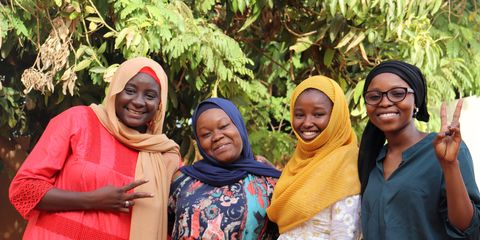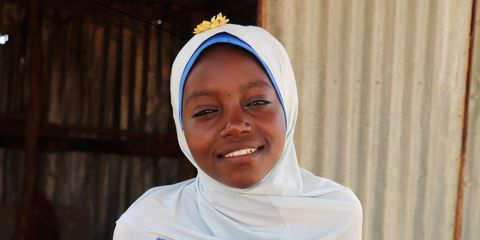Yakoura, now 20, caught HIV after being forced into marriage at 12. She is now a key advocate in the fight against gender-based violence and child marriage in her community in eastern Niger.
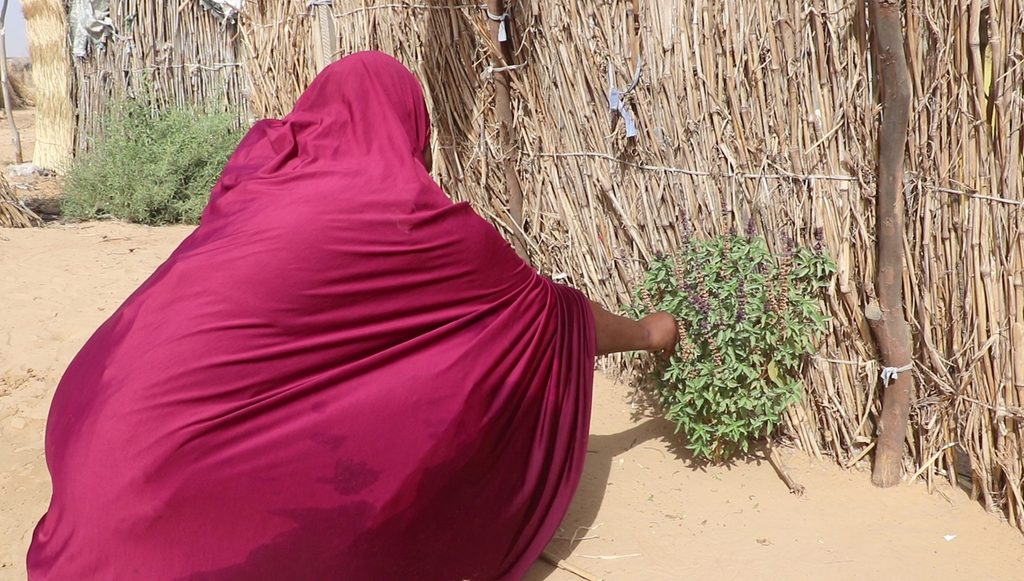
Twenty-year-old Yakoura* fled from conflict in Nigeria after her family were attacked in their home late at night by armed men. “It was 3am when we were attacked, they killed my father and the rest of us, we managed to escape into the bush. Then in the days that followed, we crossed the border into Diffa region.”
Displaced from her home and without any income, Yakoura’s mother struggled to support her large family, so decided to marry Yakoura off to a man three times her age when she was just 12 years old.
“One day, while I was playing with my little sister, my mother came to tell me that I was going to get married soon. I was shocked and couldn’t understand what was about to happen to me.”
Married and abused as a child
Yakoura was married a few weeks later to the stranger who was the same age as her late father. While other girls were enjoying going to school and dreaming of becoming doctors, lawyers or pilots, she found herself imprisoned in an unhappy and abusive marriage.
“I couldn’t be happy when he beat me or insulted me. I tried several times to run away to my mother’s home, but she always took me back to his house,” Yakoura tells us.
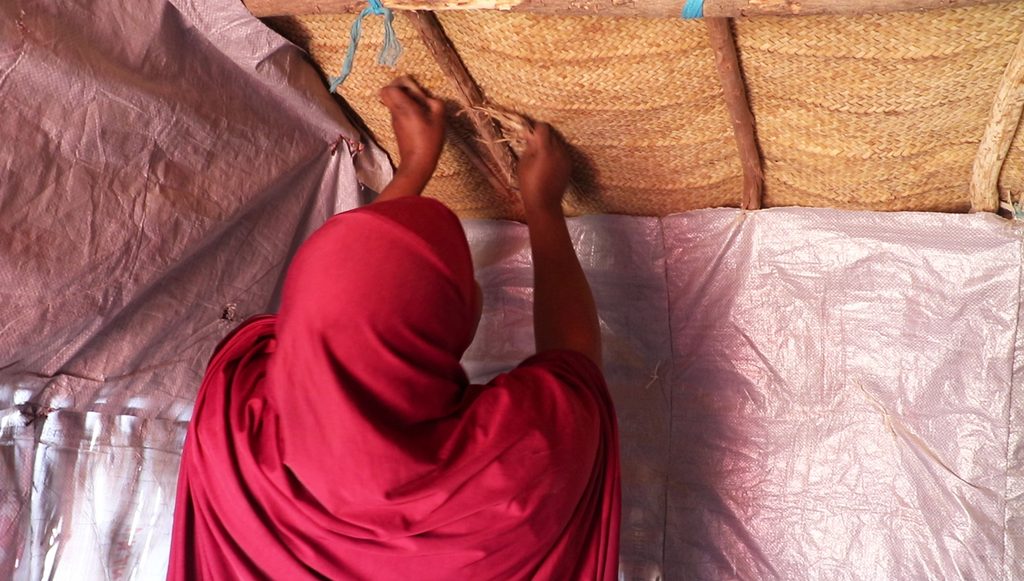
“My mother wants to do the same with my little sister who is only 13. I won’t let her do it.”
Yakoura, activist and child marriage survivor
It was only when Yakoura fell pregnant that her husband decided to send her back to her mother’s house, telling her that he could no longer stand her. “At the beginning of my pregnancy, I often got sick, so I went to the hospital for tests, and that’s when my life changed. They told me I had HIV,” says Yakoura quietly.
After giving birth to her baby, Yakoura was often unwell and struggled to look after her child. Unable to find any other way to provide for her family, Yakoura’s mother was forced into prostitution. “I had no choice but to sell my body. It is very common in my village, many women resort to this practice to support themselves and their families,” she explains.
Although Yakoura’s mother regrets her decision to force her daughter into marriage, she felt she had no other option. “I am aware that I should not have married my daughter at such a young age, but I had no choice, I thought it would offer her a better life.”
Yakoura, however, does not accept this and is concerned that her younger sister will soon face the same fate. “For me my mother is responsible for my misfortune. She wants to do the same with my little sister who is only 13 years old. I won’t let her do it.”
“I was very proud and happy to tell my story.”
Yakoura, activist and child marriage survivor
Raising her voice against child marriage
Acutely aware of the high levels of gender-based violence (GBV) that other girls in her crisis-affected community experience, Yakoura is now a key advocate in the fight against GBV and child marriage. She took part in the third African Girls Summit held in Niamey in 2021, where she shared her story with girls from across Africa.
“I didn’t know that my story would make so many people in the room cry when I spoke at the summit. I was very proud and happy to be there and tell my story. It was an opportunity for me to speak about the consequences of early marriage and to advocate for the importance of medical visits for girls and their partners before marriage, which can protect girls from harmful diseases.”
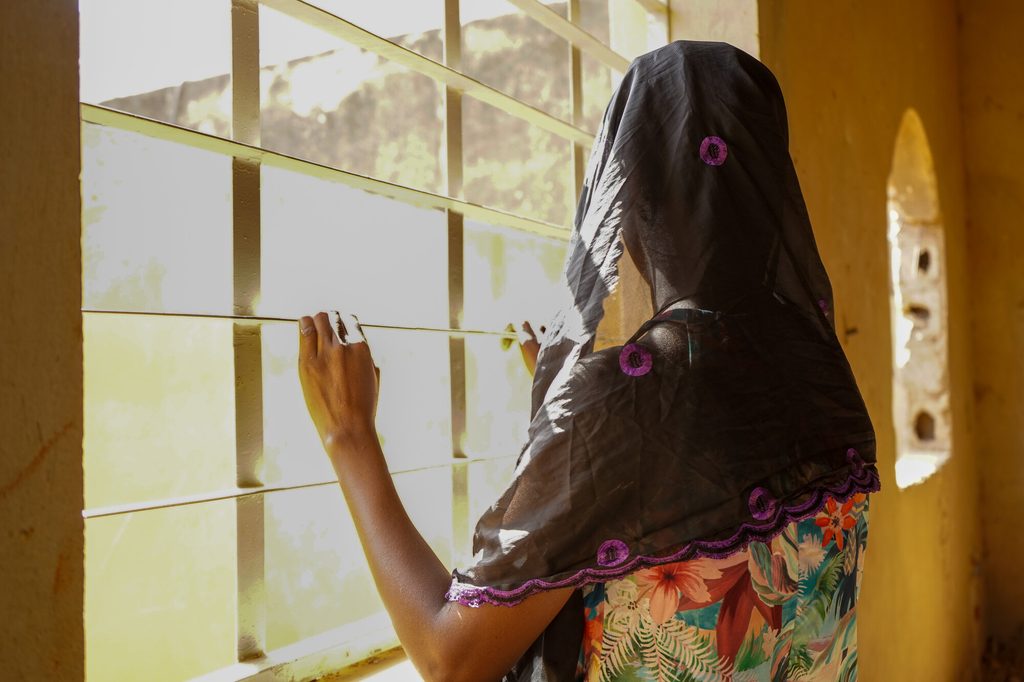
New skills help forced marriage survivor look to future
In Burkina Faso, 26-year-old Saoudata* is leaving forced marriage behind and is building a new life for herself as a successful hairdresser.
Advancing girls’ rights in the Lake Chad region
Plan International has supported Yakoura through a project funded by the German Federal Foreign Office which aims to protect girls from violence, abuse, neglect and exploitation in the Lake Chad Region. We have assisted Yakoura with psychosocial support and antiretroviral medication to help her manage her HIV and lead a healthy life.
The humanitarian crisis in the Lake Chad region has had a severe impact on the lives of women and girls. Families have felt forced to marry their daughters into marriage for dowries and poverty has pushed many girls to make dangerous choices, including running away, prostitution, alcohol and drug abuse, and even joining armed groups. As of November 2023, more than 2.9 million internally displaced people and 280,000 refugees were registered in the Lake Chad region according to OCHA.
Plan International works alongside the government and local communities to challenge the social norms, harmful practices and attitudes that impact girls’ lives and prevent them from releasing their rights, including in crisis settings. To achieve this, girls must be educated and protected and feel confident to voice their opinions and concerns at all levels.
*Name has been changed to protect identity.
